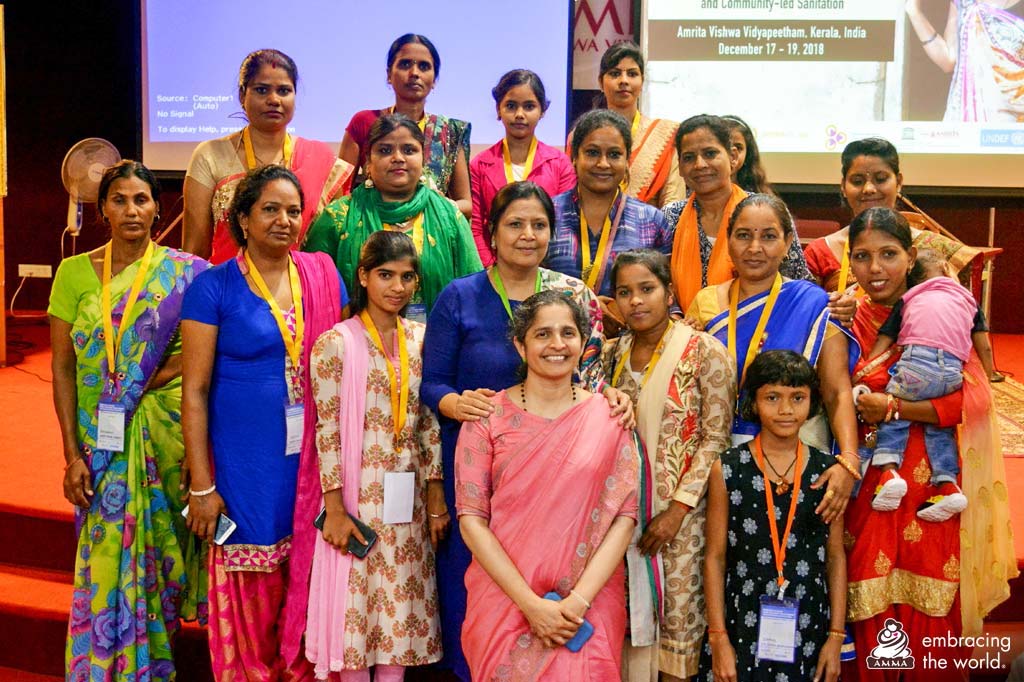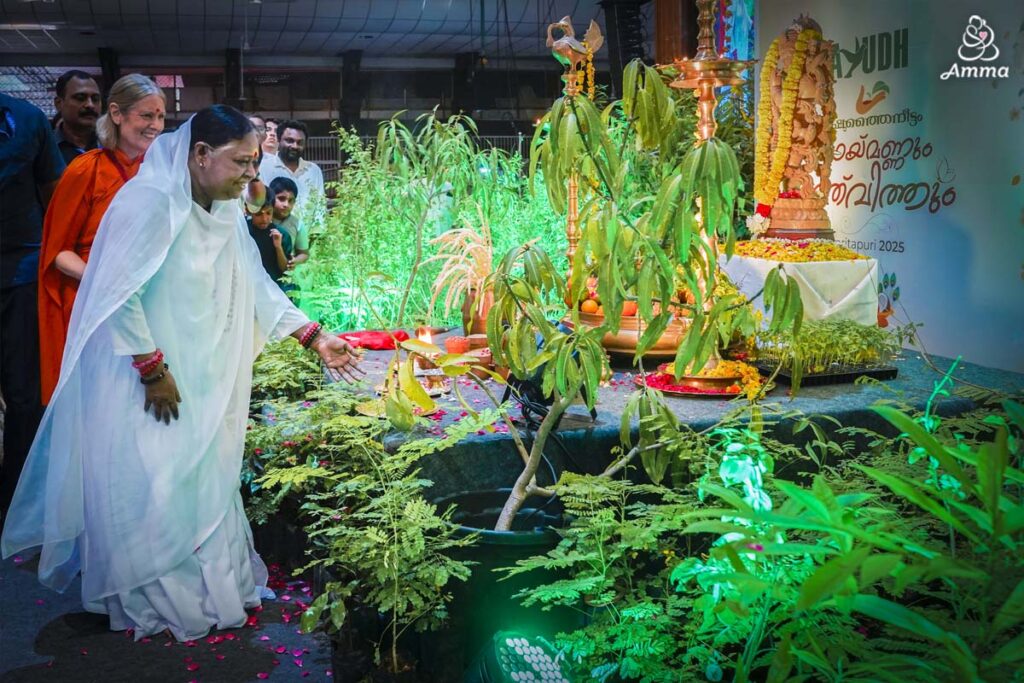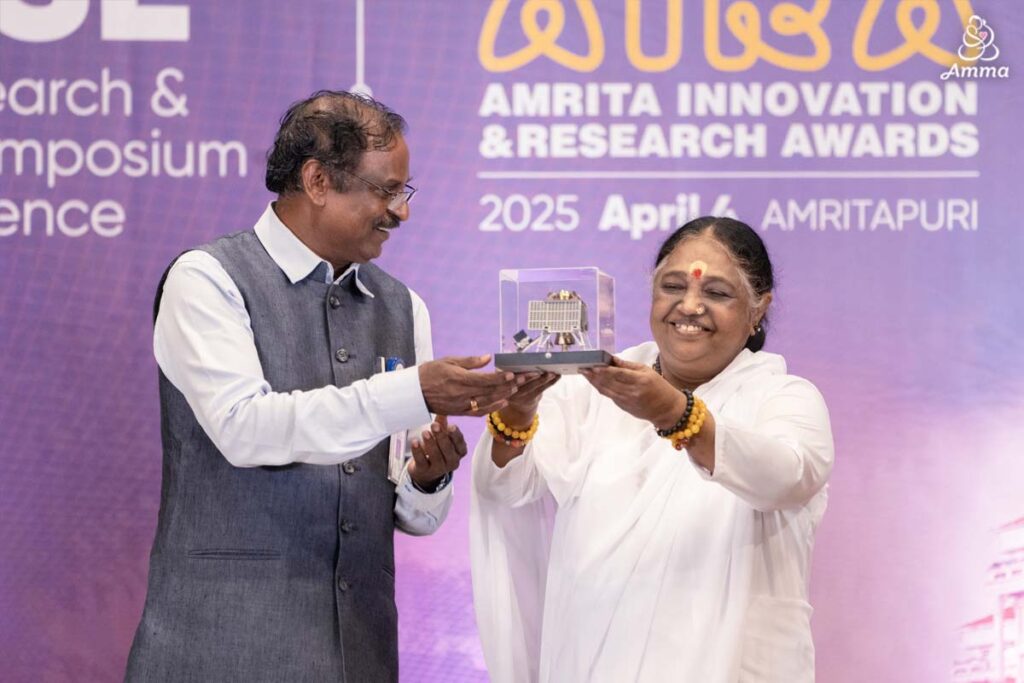A historic event took place at Amrita Vishwa Vidyapeetham’s Amritapuri campus. Amrita University’s UNESCO Chair in Gender Equality hosted its first International Colloquium for Women’s Empowerment from December 17-19.
More than 90 village women from 21 communities across India met with international delegates, Govt. of India officials, professors, representatives from UN partner organisations, technocrats and researchers.
The primary goal of the colloquium was to bring together the women sanitation champions from India’s villages, international experts, professors, policymakers, NGOs, UN partner organizations, technocrats, and researchers to take part in serious thinking, spirited dialogue, and debate on the latest issues that surround empowerment of women in a sustainable development context.
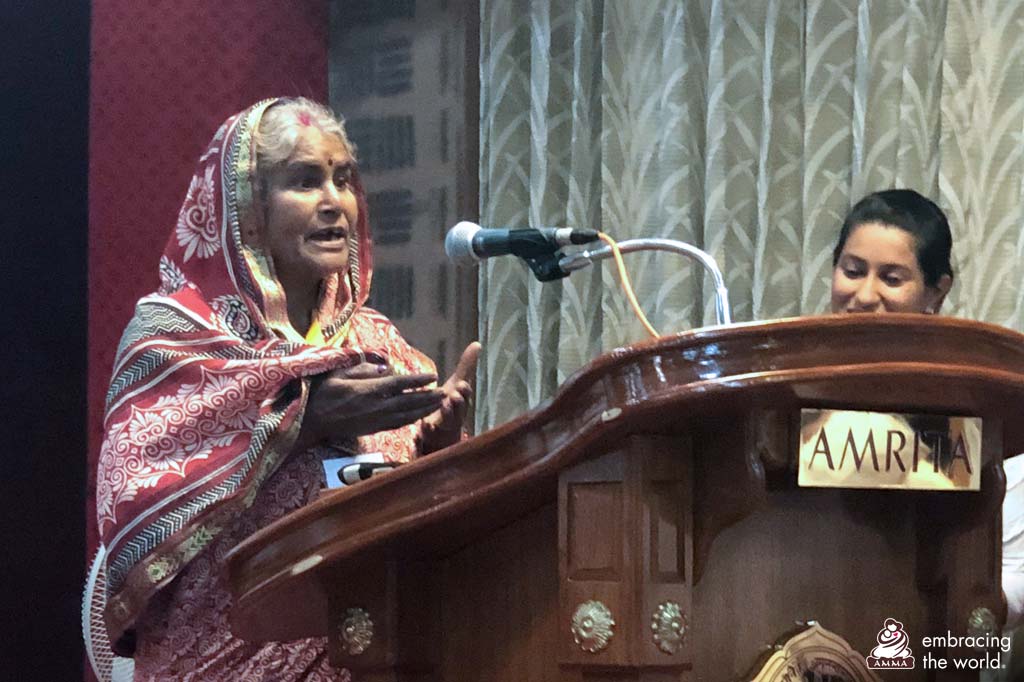
“We are thankful for the knowledge shared, the support given and the trust bestowed upon us,” said Bhag Jogan Debi, a villager from Hadiabad, Bihar. In one of the sessions, she spontaneously ascended the podium to share her experience in working with Amrita University’s Women’s Empowerment Project.
“In our language, when thoughts are pure, actions automatically become good – and when your actions are good, your children automatically become better people. This project has planted seeds for a better future for our community.”
Debi’s words clearly moved all present in the conference room. They were a testament to what it means to a woman to feel that her voice is not only heard, but matters.
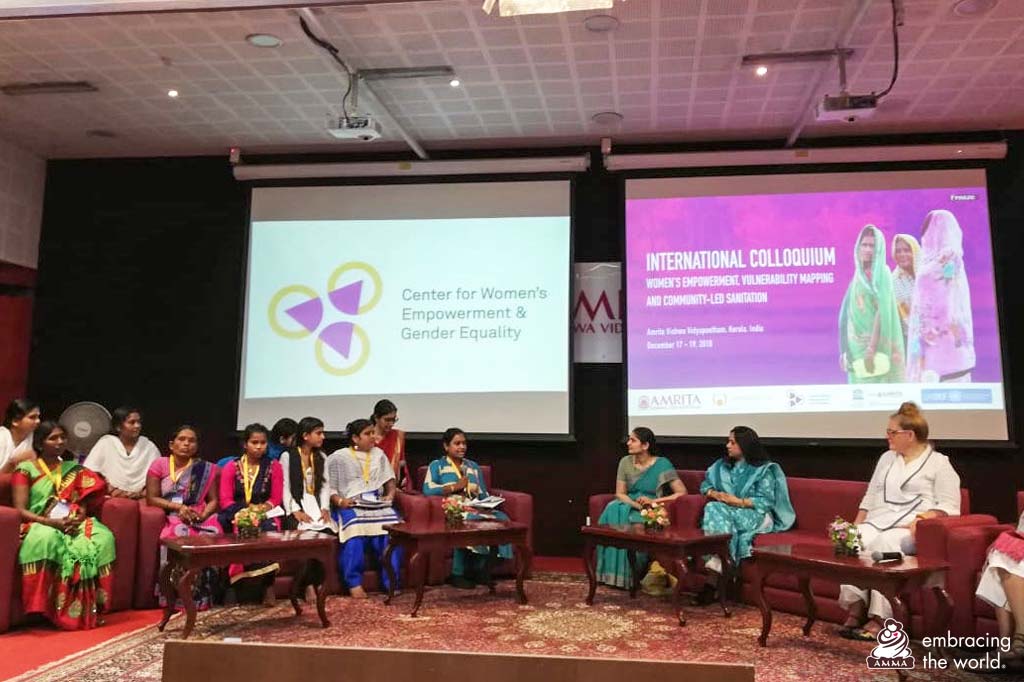
Prof. Bhavani Rao is the Amrita UNESCO Chairholder. She shared, “It was inspiring to see so many women from all strata of society take part in this remarkable event and then come together in a unified voice to further women’s empowerment. Before this, many of these women had never ventured outside of their small communities, interacted with government officials or made efforts to improve the situation in their village.”
The colloquium addressed six specific areas of vulnerability for women – Education; Healthcare and Sanitation; Safety and Security; Economics and Livelihood; Socio-Political Environment and Legal Issues; and Disasters and Climate Change.
Keynote speakers at the colloquium included Dr. Deepa Narayan – international poverty, gender and development advisor and renowned author and speaker; the Hon. Judge Swati Chauhan – founder of Swayamsiddha Foundation, an initiative for women; and Andy Carmone – global health expert and Director of Clinical Science at Clinton Health Access Initiative.
“Voice is one of the most powerful things that we have,” emphasized Narayan. “And yet women are told to speak softly – or not to speak at all. Reclaiming voice is important because without voice one is not really human and there is no empowerment.”
Ultimately, the colloquium celebrated the successful completion of a joint project between the UN Democracy Fund (UNDEF) and Amrita University called “Women’s Empowerment: Community Sanitation through Democratic Participation”. In the villages, 300 “Champions of Change” and 5,000 “Change Agents” took part.
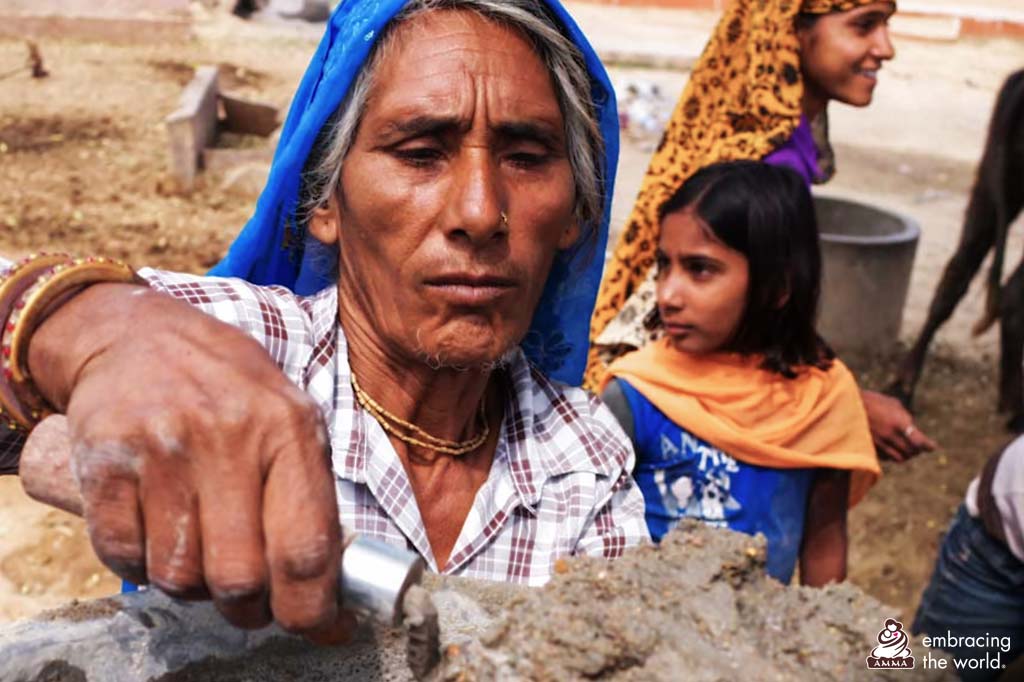
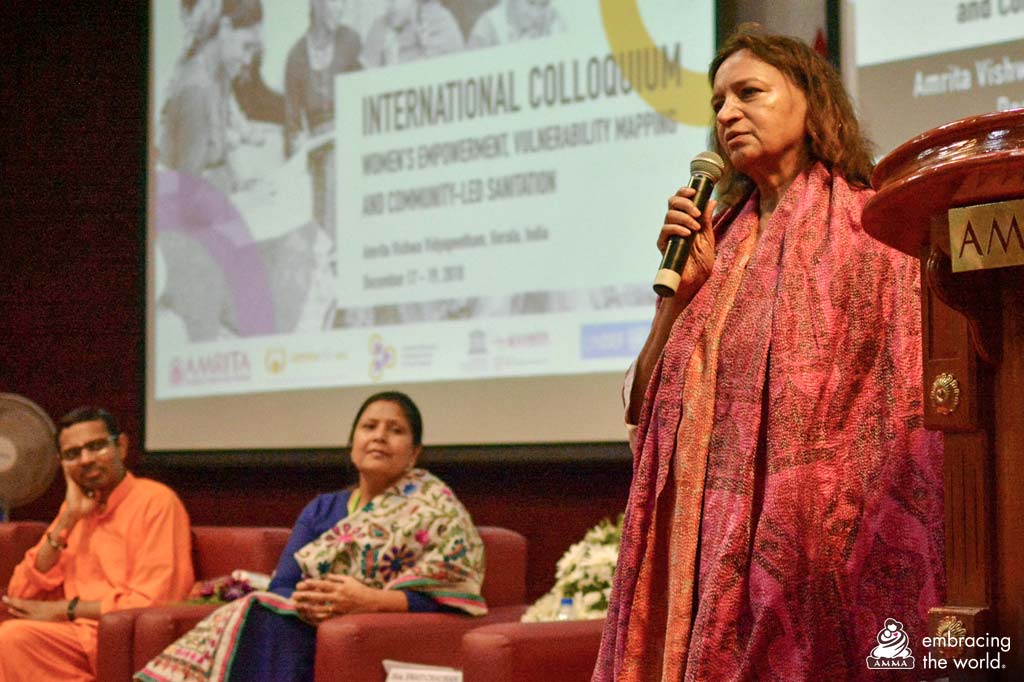
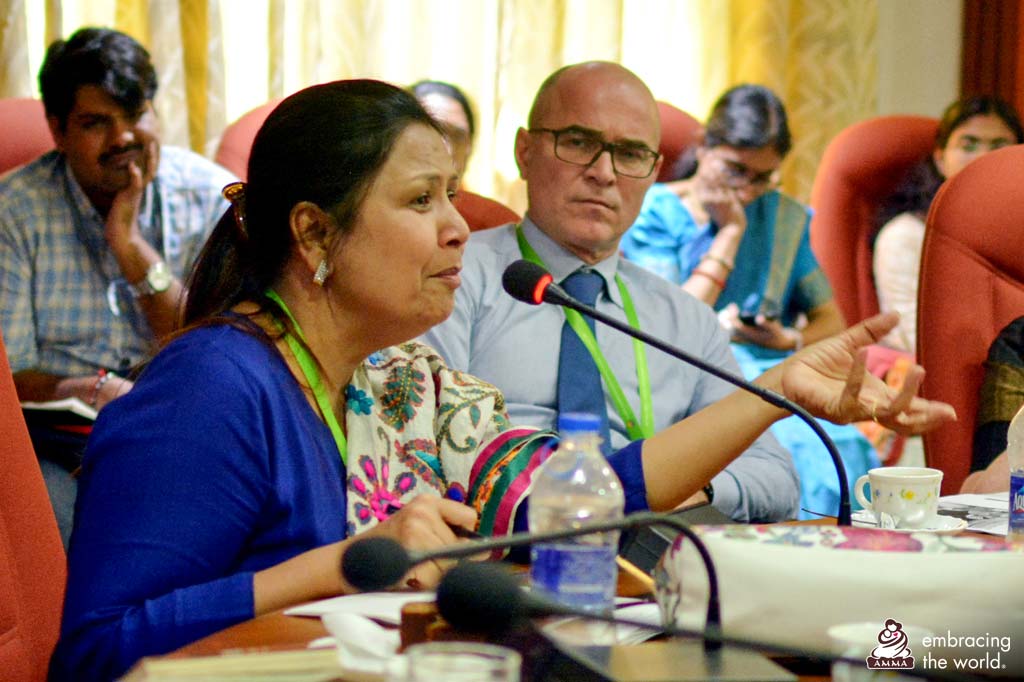
The program offered intensive training on women’s health, clean water and sanitation, community development, financial literacy, self-confidence and more. The village participants were supported in conducting community action events, initiating meetings with local government offices, and ensuring community-led total sanitation.
Rao said, “With the empowerment and education gained from the Amrita-UNDEF project, these women successfully led discussions and shared their perspective on how policy can better reflect the issues that they really face in their daily lives. Their discussions will form the foundation of an upcoming Policy Brief to be submitted to the proper channels in the Indian Central Government.”
Rao also explained, “What’s most remarkable is that these women have initiated close to 400 formal meetings with local and state government officials to seek advice and to request assistance in launching useful programs. They’ve even submitted right-to-information requests and filed grievances for improving village infrastructure and securing their rights.”
The UNESCO Chair’s activities and research are based on the vision of Amma, who is Amrita University’s Chancellor. Amma said, “Like the two wings of a bird, women and men are of equal value. For without the two in perfect balance, humanity cannot progress.”


